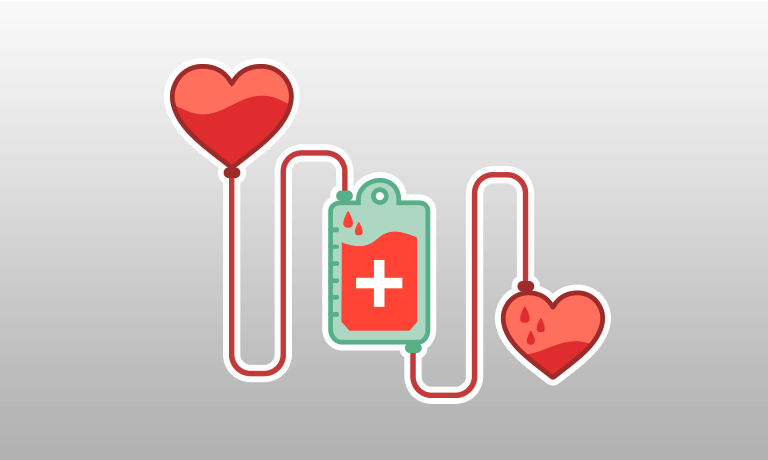Blood Donation in India – History And Guidelines
Blood donation is something that each and every one working in corporate India has witnessed or experienced at least once. Most corporate wellness activities or CSR activities incorporate, if not more
at least one blood donation camp.
Blood donation is not only an indispensable part of any social program but it is also one of the most imperative prerequisites for treating any serious ailment related to the replacement or loss of blood. Blood transfusion is considered to be a life-saving mechanism in several cases and this, is of pivotal importance not only in India but all over the world.
A Brief History
Though blood donation happens to be a fairly new concept, there are evidences of blood transfusion in ancient texts of Egypt and Greece. You will find that even the ancient Indian texts bear worthy testimonies about it.
In the year 1942, the first blood bank was set up. This was primarily done for supporting the war efforts at that time. Most of the donors were government employees or sympathizers of the British cause. After the war was over, the camps shut down and the number of donors also went down to a great extent.
Many years later, Dr. J G Jolly in Chandigarh and Leela Moolgaonkar from Bombay took the effort to set up the blood banks and the associated channels. Dr. J G Jolly is said to be the father of the blood transfusion movement. He set up the blood banks and declared the 1st of October as the Voluntary Blood Donation Day.
Guidelines of Blood Donation
The year 1980 is of crucial significance in the history of blood donation. It saw the setting up of proper guidelines for those volunteers who want to donate blood.
There are a number of parameters that determine the individual’s ability to donate blood. The Ministry of Health and Family Welfare has put forward the guidelines enlisted below for the organisations conducting the blood donation camps and the volunteers who are willing to donate blood.
Age and Weight – The donor must be 18-60 years old and should weigh a minimum of 18-60 years
Haemoglobin Level – It has to be a minimum of 12.5 g/Dl
Overall Health – The donor must be healthy and fit and should not be suffering from any diseases that are transmittable
Pulse Rate – It must be between 50 and 100 without any irregularities
Body Temperature – The body temperature must be normal and 37.5 degree Celsius should be the maximum oral temperature
Blood Pressure – Systolic – 100-180 mm Hg and Diastolic – 50-100 mm Hg
Time Gap – The time period between two successive blood donations must be minimum 3 months
The above discourse throws some light on the history and guidelines of blood donation in India. One more thing that you need to take ample care of is to use quality and fresh dispovan syringes everytime blood donation is conducted. If you keep the above in mind, then minimum blood will be wasted and you can extract maximum fruitful results from the campaign.
Author Bio:-
This article is written by Akshay Sharma. He works with Smart Medical Buyer, one of largest online medical stores in India






Leave a Reply